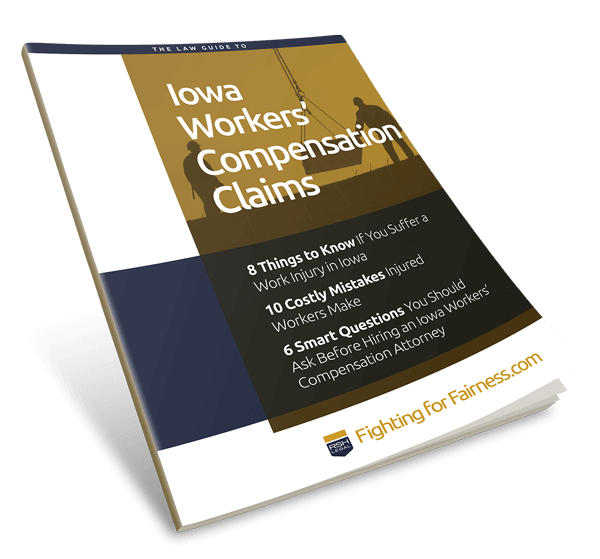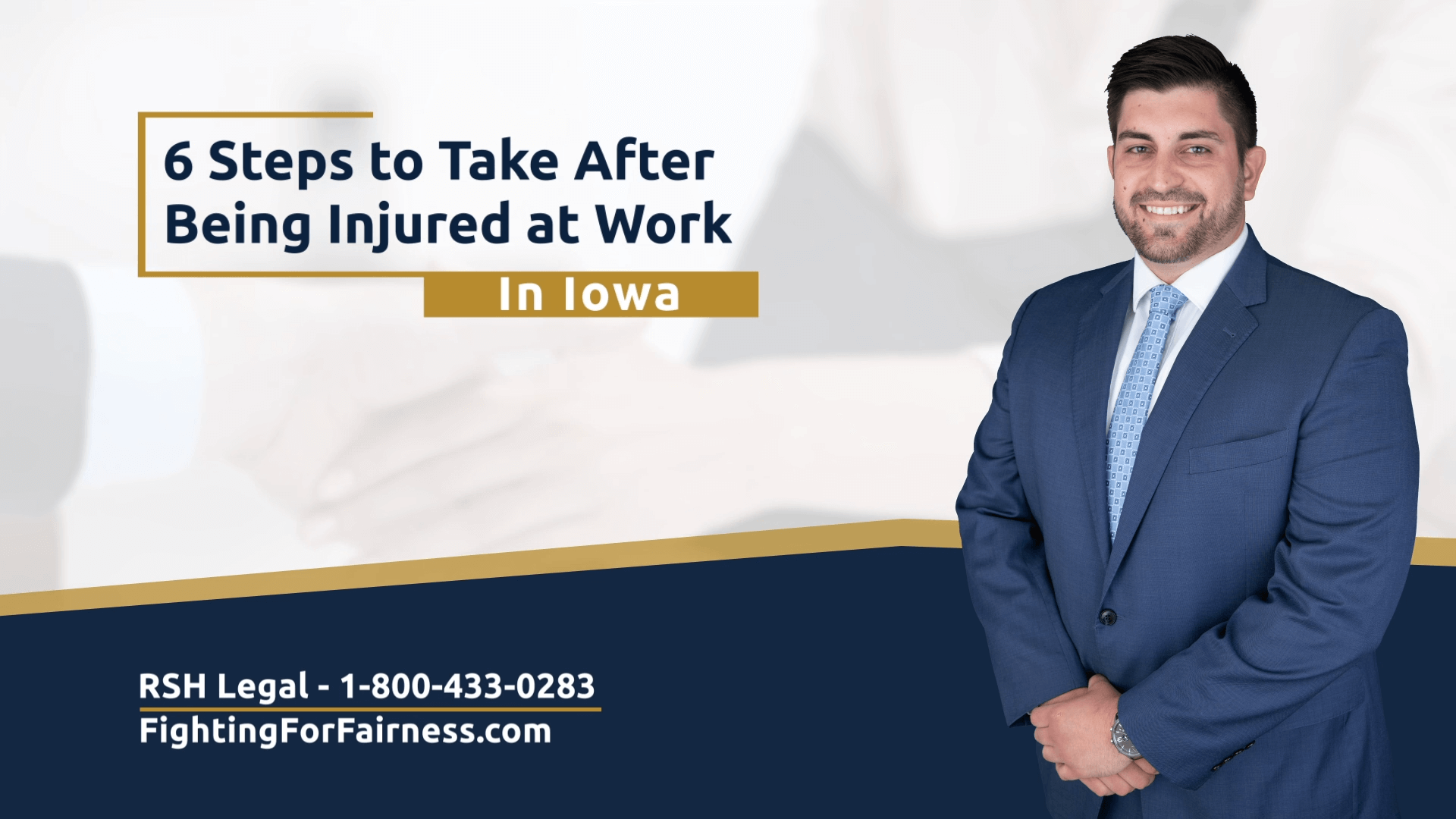Attention! Iowa’s Workers’ Compensation laws changed July 1, 2017. This article’s information may be out of date. Visit our Workers’ Compensation Page for more information.
Have you been injured on the job in Iowa, and now you don’t know if you need an Iowa workers’ compensation attorney?
There are a few guidelines that you can follow to determine whether a work comp lawyer would be able to help you after a work-related injury.
When Not To Hire an Iowa Workers’ Compensation Lawyer
First, let’s talk about when it might not make sense to hire a workers’ compensation attorney. As a general rule, you should hire an attorney when doing so results in a better outcome than you could have gotten on your own.
There are instances when it makes more sense for an injured worker to handle their own work comp claim. For example, if you have suffered a fairly minor injury that did not result in you missing work, and your employer’s insurance company is being cooperative in getting you benefits, you may be able to handle your claim without a lawyer getting involved.
Understand though, that even if you think the claim is going smoothly, the insurance company may not be paying you everything that you are entitled to. So regardless of how badly you were hurt, it never hurts to contact us for a free consultation. I am always honest with injured workers about whether I think it makes sense to get an attorney specializing in workers’ compensation law involved—if I don’t think we can help you, I will tell you that and I can give you some pointers of what to look out for if you are going to handle the claim on your own.
When You Should Hire an Iowa Workers’ Compensation Attorney
1. If you suffered a serious, permanent injury.
Determining fair compensation for your injury can be a complicated process. There are a number of things that have to be considered. Figuring out your weekly benefit rate, for example, is dependent on several different factors. The only way you can be sure you are receiving the correct rate is to speak with a workers’ compensation attorney.
If you have suffered an injury to the center of your body, like your hip, shoulder, head or spine, as opposed to a limb, what you are owed for your injury can be fairly complex. Typically, the insurance company is going to pay you the bare minimum for that injury. Our job is to gather evidence to show the insurance company or the workers’ compensation judge so that you can receive fair compensation for your injury. This may involve getting second opinions from honest doctors. A lawyer can help you with this.
2. If the insurance company isn’t covering your medical bills.
If you’ve suffered a work injury, your employer’s insurance company is required to pay all reasonable and necessary medical bills by authorized providers. However, insurance companies often use tactics to avoid paying your bills.
One of these tactics is relying on your own health insurance to pay for your work-related medical bills. This is a problem because your health insurance company may demand repayment of your bills after you have reached a settlement. That means you could have to pay the insurance company out of your settlement, which is not right.
Your employer’s workers’ compensation insurance company may also refuse to pay your medical bills if you do not see a provider they have authorized for treatment. The employer has the right to choose who you see for treatment, because they are paying for that care. If you want your treatment to be covered, it is important that you see someone who is “authorized” by your employer. If the authorized provider is not providing reasonable care, you can ask a work comp judge to order alternate medical care—an attorney can help you with that as well.
3. If you receive Social Security Disability or Medicare benefits, you may need a work comp attorney.
If you are not careful, the amount of money you receive for a work injury can reduce your Social Security Disability or Medicare benefits. You need to take the necessary precautions to prevent your benefits from being taken away or reduced.
The only way to prevent this is to put special language in the workers’ compensation settlement paperwork. This usually takes the expertise of an experienced workers’ compensation attorney. Your attorney can make sure the settlement paperwork is correct so that you do not lose out on any government benefits.
4. The workers’ compensation company is denying your claim.
Don’t take the insurance company’s word for it that you didn’t suffer a work-related injury. Pre-existing conditions that are made worse by work activities are covered. Depression from a work injury is also covered. Injuries that come on over time are covered. Employers often have artificial deadlines for reporting a work injury that don’t comply with Iowa law – those injuries may be covered.
Before you give up on your workers’ compensation claim just because the insurance company tells you to, call a workers’ compensation lawyer first. You may have a claim that is worth pursuing.
Each workers’ compensation claim is different. If you have further questions about your case, download our free Law Guide to Iowa Workers’ Compensation Claims or call us at 1-319-774-1542.




